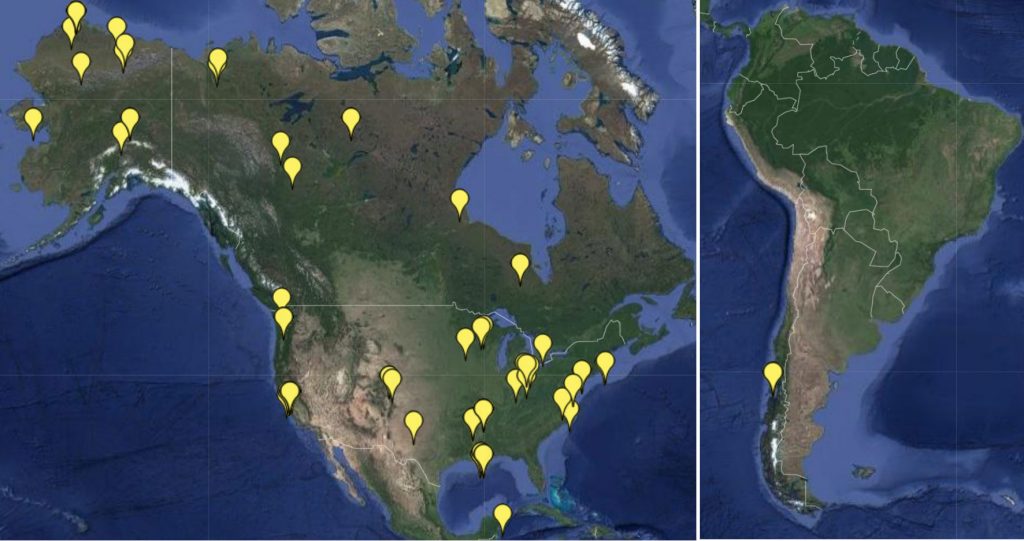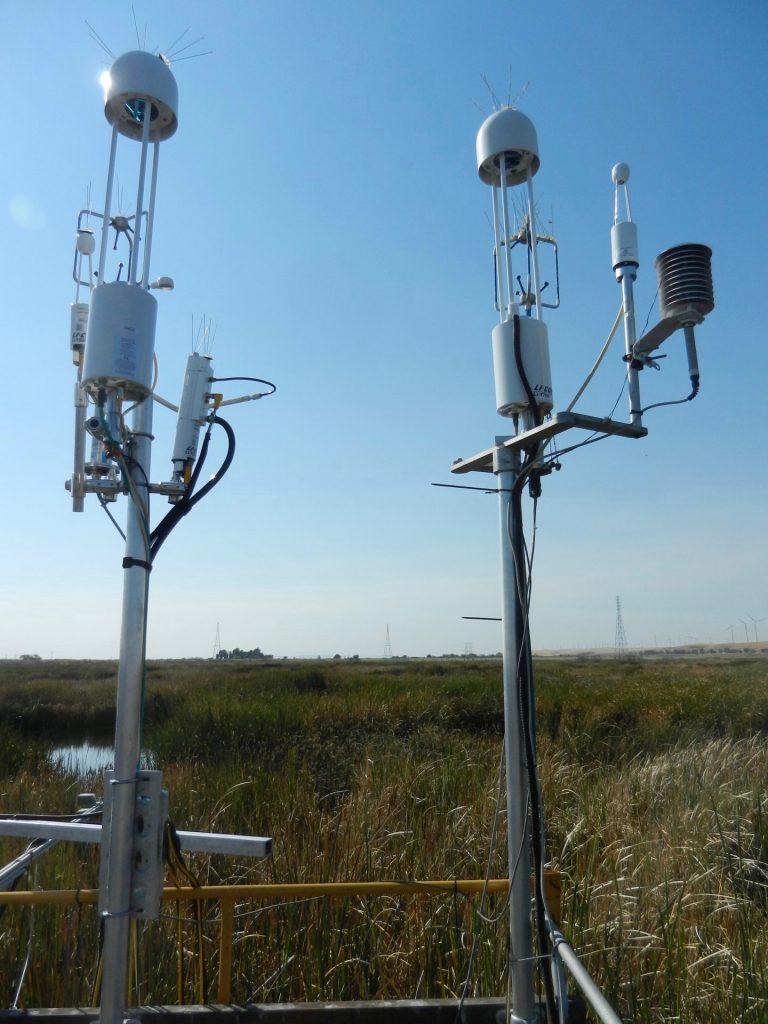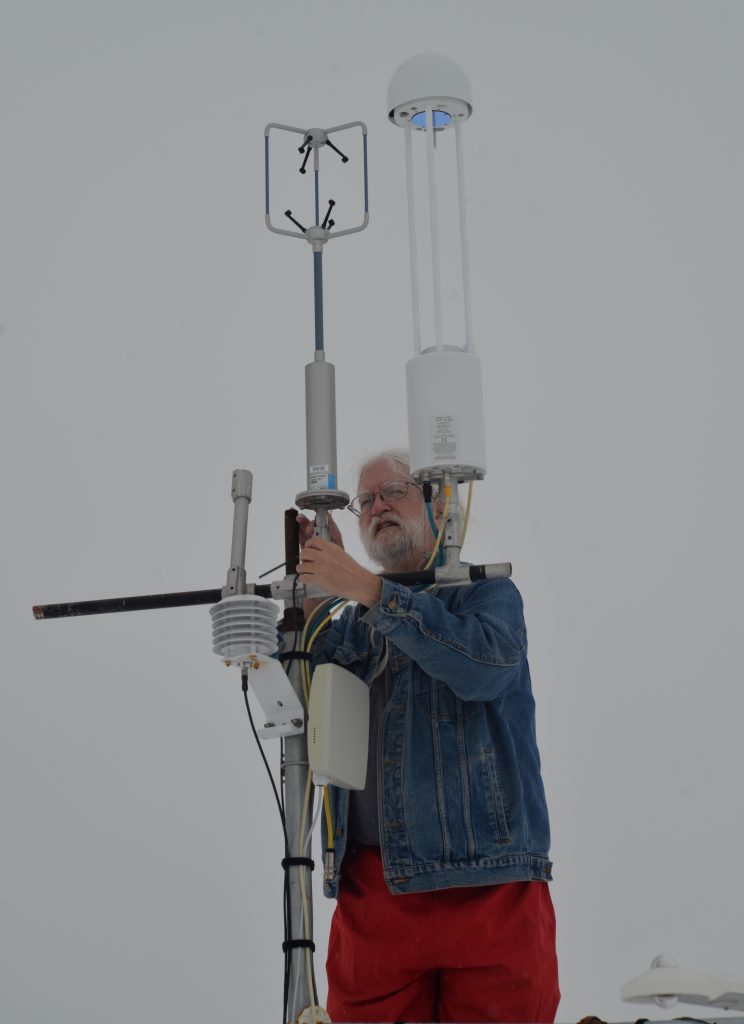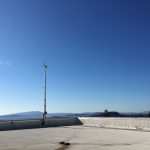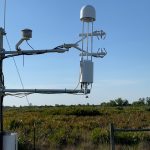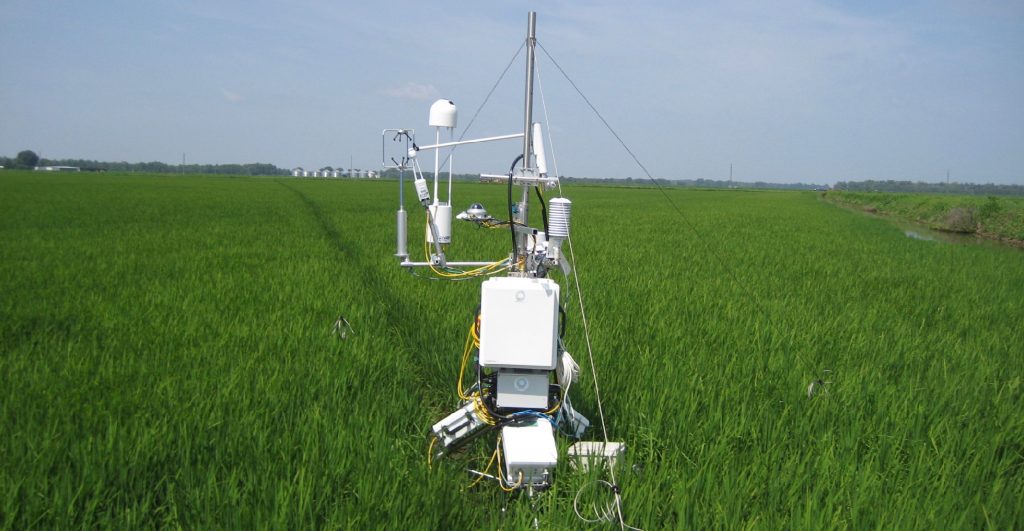
AmeriFlux Tech Team’s PECS doing methane flux measurements with open path LICOR 7700, at AmeriFlux site US-HRA, June 2015. Photo cr. Stephen Chan
We are launching the Year of Methane—AmeriFlux’s first “Action Theme Year.” The plan is to gear up community action during Fall 2018. In 2019 we’ll concentrate on encouraging more methane eddy covariance measurements and data contributions, enhancing data quality, and helping to build strong collaborations to work on the many science challenges and uncertainties in understanding ecosystem methane fluxes.
AmeriFlux Goals for the Year of Methane
We will promote:
- Public visibility
- Data quality
- Broad ecosystem representation
- Opportunities for research and collaboration
- Community ties
Our partners for the Year of Methane are the Coastal Carbon Project, Global Carbon Project, FLUXNET, ICOS RINGO, and other regional flux networks.
AmeriFlux in Action
The AmeriFlux Management Project (AMP) Tech Team will support efforts to expand and improve the quality of methane eddy covariance measurements by loaning two LI-COR-7700 open path CH4 analyzers, and issuing free CH4 calibration gases. To request specifications and methane calibration gases, email the AmeriFlux Tech Team at ameriflux-tech@lbl.gov. Below is a list of sites who received loaner LI-7700 sensors.
- US-HRP; Mar-Nov 2019
- US-PLM; Mar-Nov 2019, see blog post highlight
- US-HRN; May 2019-Nov 2020, see blog post highlight
- US-TrB and US-TrS; Mar-Oct 2020, see blog post highlight
- US-Ona; Apr-Dec 2021, see blog post highlight
- US-KPL; Apr-Sept 2021, see blog post highlight
- US-DBk;Nov 2021-Apr 2022, see blog post highlight
- US-HB4; 2020-2022, see blog post highlight
- US-NSW; Sept 2022-June 2023, see blog post highlight
The AMP Data Team has standardized methane-related variables for flux/met data products to include with eddy covariance methane measurements. They will collaborate with partners to build a new BASE FLUXNET product for methane flux data. The Data Team will also aid those who have been collecting, but not submitting, methane eddy covariance measurements in the past to prepare their data for submission.
The AMP Outreach will support community efforts, such as this webpage, a special Methane Session at the 2018 AmeriFlux PI Meeting (October 24-25, 2018), and co-organizing a Year of Methane workshop in 2019. In addition, we will host a Community List / Public Forum for those interested in methane research. AmeriFlux has already hosted a workshop named AmeriFlux Decadal Synthesis (August 2018), which included a Methane breakout session as well.
AMP will also work with other U.S. agencies and partners to promote synergies and leverage resources.
You, the Researcher, in Action
- What kind of methane research do you want to pursue?
- What do you think the AMP Team can do to help you?
- Do you have ideas on how the goals listed above can be best fulfilled?
- What other partners should we engage?
- Are there events or opportunities coming up that you want to share with your fellow ecosystem methane flux researchers?
Contact ameriflux@lbl.gov to share your ideas! (Soon we’ll have the Year of Methane Forum launched, and you can share directly there.)
Partners in Action
Global Carbon Project (GCP), with support from the Gordon and Betty Moore Foundation and the Powell Center at USGS, are collecting, synthesizing and curating methane flux data worldwide. First results of this GCP FLUXNET Methane Synthesis project are slated to become available in Spring 2019. As part of its theme year, AmeriFlux will set up access to this data set via the FLUXNET website. Gavin McNicol is the primary contact for the GCP FLUXNET Methane Synthesis project. He succeeds Dr. Sara Knox, who is starting a new position at University of British Columbia; she will continue working on the synthesis. In addition, the GCP will help develop dynamic water-body databases that identify and consistently define freshwater wetlands, lakes and rivers, coordinate mapping of these features, and incorporate data on static and seasonal inundation.
ICOS RINGO has people working on both CH4 and N2O exchanges, which are characterized by episodic fluxes. They are looking to refine data processing, identify additional driver variables essential to understanding CH4 and N2O fluxes, and develop new methods for quality checks, which will differ from those that work well for CO2.
Coastal Carbon Project (CCP) is an NSF-funded Research Coordination Network on “Improved process modeling and mapping of tidal wetland methane emissions.” They are currently recruiting for members of the working group. The CCP hopes to deliver final products by December 2019.
Measuring methane flux in the field
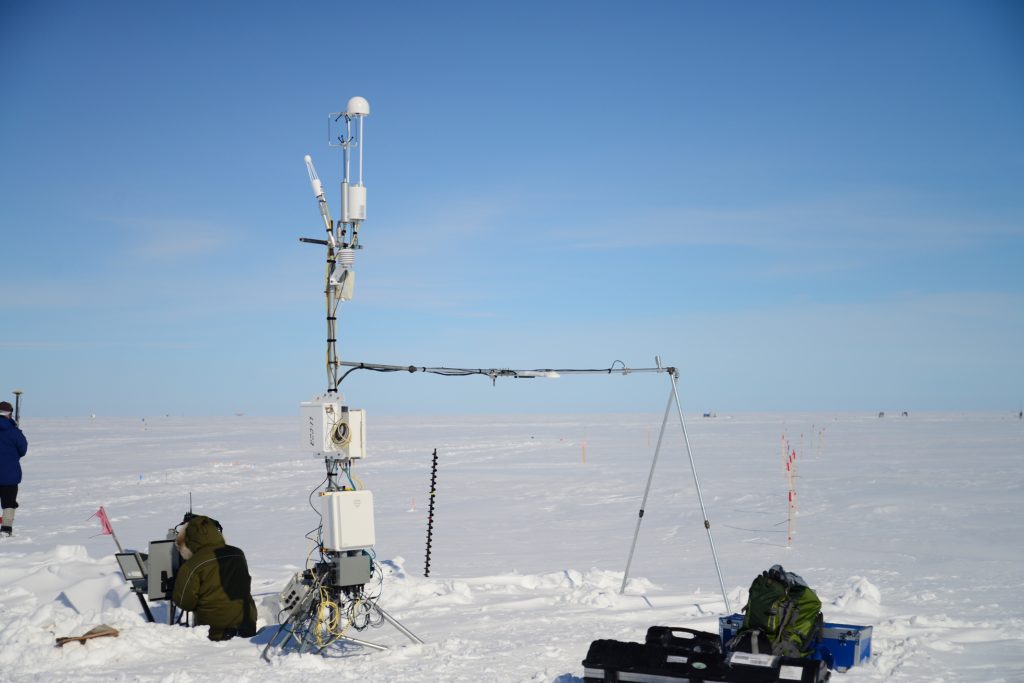
Tower measuring methane flux (LI-COR 7700 open path), NGEE tower, Barrow AK, May 2015. Cr. D. Billesbach.
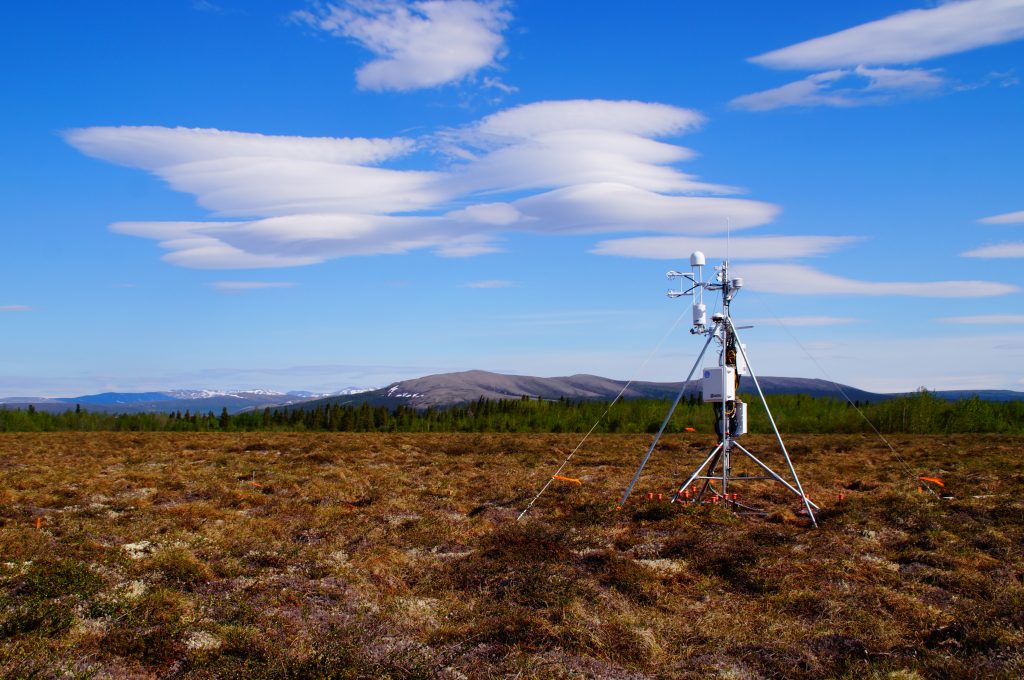
Methane (LI-COR 7700 open path) and carbon dioxide flux measurements carried out at the NGEE-Arctic/AmeriFlux US-NGC Council, Alaska site, which is a lichen-rich subarctic tussock tundra on underlying continuous permafrost. Photo cr. Sigrid Dengel

